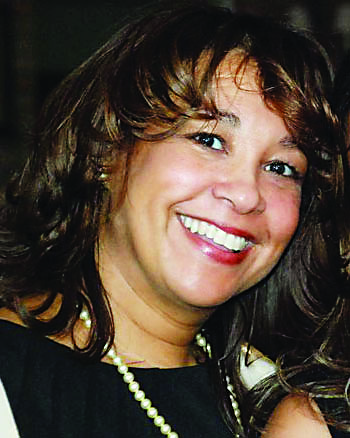
Reflections on Life
By Berta Mexidor
“ For the law of the Spirit of life in Christ Jesus made me free from the law of sin and of death.” (Romans 8: 2)
Faith in God and permanent prayer are the palliative with which thousands of undocumented immigrants maintain for years a life outside immigration law. “But if, while we sought to be justified in Christ, we ourselves also were found sinners, is Christ a minister of sin? God forbid.” (Galatians 2:17)
When a person decides to become an illegal immigrant, most of the time he or she has weighed the great dilemma and consequences of its actions. Many immigrants come to the United States with the certainty of finding laws much more humane and reasonable than those of his country of origin. “And the law came in besides, that the trespass might abound; but where sin abounded, grace did abound more exceedingly.” (Romans 5:20) In a joint statement, the bishops of Mississippi stressed that the role of the church at this time is “to provide comfort, material assistance and strength to separated children, parents and families and to those traumatized.”
In the raids conducted, people arrested, were found in their places of employment. Many did not have legal documents to work or remain in the United States. Some people were quickly released to continue with their lives, yet others were released with electronic bracelets, while waiting for a court appearance. Some of those detained will choose to return to their home countries voluntarily. Others, depending on their legal situation, will be deported or prosecuted criminally, while their relatives can only hold on to the divine and man’s laws.
In the bishops joint statement, they point out “to say that immigration reform is a contentious and complex topic would be an understatement.” Millions of people want to come to the United States for the humanization of their laws, contributing to a healthier life for every citizen, economic and personally. Many must wait for years. Thousands are waiting around the world, trusting the system, others resign themselves to stay in their countries and cast away the dream of living in America, the” promised land,” the “American dream.”
There are others who, in a situation of abuse, poverty and despair, cannot wait or do not have the financial means or education and decide to cross the border by risking their lives and that of their children. The vast majority subject their children to a situation of hopeful illegality when they bring them across the border. Others are procreated here in the States and are in fact American citizens. Their parents raising them with the hope of a better life and a possible immigration solution for their family members.
Generally, this illegality is not planned, therefore, there is no contingency plan present. There is no talk of hidden pain before children, some of whom grow up without knowing all the legal implications of the complex situation of their parents and relatives are going through.
Unfortunately, some immigrants take advantage of the laws and commit deceptive acts. These negatively affect American society and all immigrants.
The expectations of undocumented immigrants are to work and to live in a much healthier society than they left behind. None want to be captured, but each of them knows that capture is a possibility of the situation in which they find themselves. No person is fully prepared to face the authorities and much less to see their children suffer throughout the process.
The vast majority of immigrants are simple, fervent Christians, good parents and family people who aspire for a better life for their descendants. Some voices try to vilify the immigrant or consider them a victim. Immigrants are neither one nor the other. They are just people. When they break the law, it is only as a last resource for family improvement. With much humility, many are aware of the transgression, but the human misfortune in which they live drives them into an act of courage with civil or criminal consequences.
Many immigrants are Catholics much like you. The church is the center of understanding, spiritual help and the place to share experiences with people in the same situation or with those who share the same faith. They ask God for forgiveness for their sins and mercy as a reward under the received promise of “ But go ye and learn what this meaneth, I desire mercy, and not sacrifice: for I came not to call the righteous, but sinners.” (Matthew 9:13).
(Berta Mexidor is Mississippi Catholic contributor, manages content for Mississippi Católico. Native of Cuba, in the U.S. for 18 years and hold a master’s degree in political sciences.)
